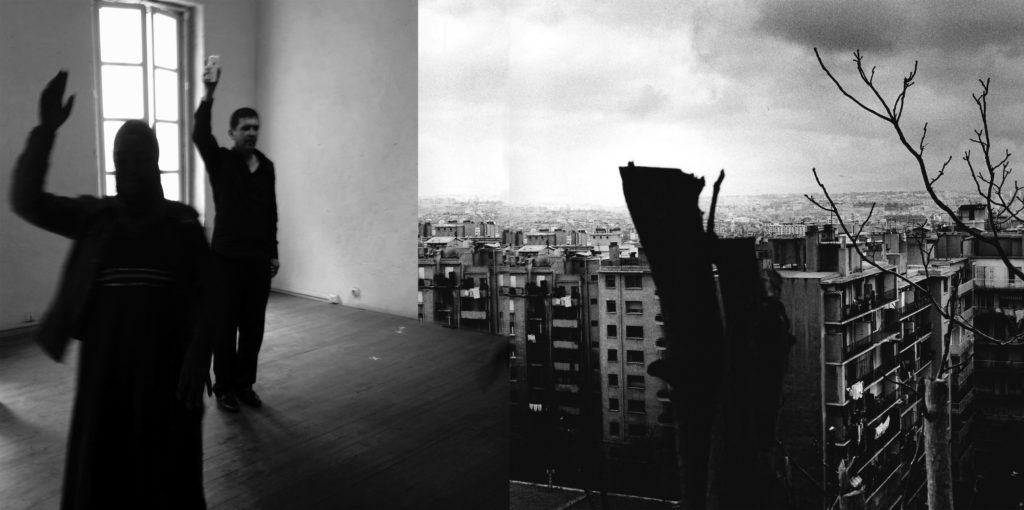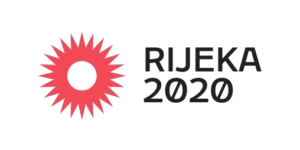Open call for artworks within the project Risk Change
28.5.–14.7.2019.

The Museum of Modern and Contemporary Art Rijeka announces an
OPEN CALL
for artworks
for We’re not Like Them exhibition, which is to be held as the fourth episode of the EU project RISK CHANGE
Cordial or cold? Two-faced and fanatic? Pacific or aggressive?
In the final episode of RISK CHANGE, we deal with prejudices with which we construct the picture about others, but we also address the question of how others see us. On the intersection of contemporary art, anthropology and social psychology, we examine an unusual glossary containing the terminology of ‘the other’ – a neighbor, a stranger, a newcomer.
Contrary to the modern proclamations about cultural diversity, in the times of turbulent social changes, the perception of ‘the other’ often takes on a negative charge, which manifests in exclusion, repulsion, negation and the creation of a fictive image of the main culprit. Both in the newly formed, post-socialist states and the western democracies, we bear witness to hostile attitudes towards ‘the other’, attitudes that often exist only in shady simplifications of ‘us vs. them’.
Moreover, the political issue of ‘the other’ is explored within the frames of treating of the foreigner as a menacing usurper of (our) prosperity, which boils down to a black and white perspective – we are the friends, they are the enemies.
With the help of the mass media, the notion of ‘the other’ easily becomes the instrument of political management which overestimates what is ‘ours’ and dehumanizes what is ‘theirs’. An outsider at the least, the nameless ‘other’ becomes something secondary, always under surveillance and qualitatively different. In the atmosphere of resistance and fear of inevitable global changes that disturb the steady notions of identity, we end with xenophobia as a political force on the one hand, and the unstoppable migration processes on the other.
Apart from the modern forms of redefining ‘the other’, we are interested in conceptions of ‘the foreign’, epitomized in Croatian phrases such as ne pravi se Englez [“Stop playing an Englishman” – don’t play stupid], dužan ko’ Grčka [“as indebted as Greece” – to be head over ears in debt], or pušiš ko’ Turčin [“you smoke like a Turk” – you smoke like a chimney] which exist in our language as part of oral tradition and folklore.
Such phrases cause discomfort, but they also discharge the negative emotional electricity. With an intention of beating the hypocrisy of the official rhetoric, we occupy ourselves with allegorical language about ‘the other’, which includes archaic expressions and untranslatable idioms such as nije beg cicija! [the bey is not a cheapskate!].
We will examine the stereotypes, known for their conciseness and thematic variety, as ways of shaping the reality, but also as the results of an ancient human need for simplification and standardization. It is amazing how easy it is to remember them, how pleasurable it is to listen to the sound of them, how frequently they appear in books, films, popular culture.
Yet, under the pressure of political correctness, these stereotypes have lately been softened in modern colloquial vocabulary by the use of milder words and vague phrases that only declaratively promote equality. Binarily structured, these stereotypes make us to feel better about ourselves, but they come with a dose of humor, which is also one of the topics of this exhibition.
The final exhibition in RISK CHANGE reflects on the question of what draws us to ‘the other’, and what repulses us. Also, it raises the question of what makes us the objects of scorn? We would like to know which stereotypes about foreign spaces are still present today, and are there any new ones invented?
But the main question is, how the migration crisis affects our picture of newcomers? Regardless of the fact that today, amidst the increased mobility and the omnipresence of media and communication technologies, the stereotypes – national, class or gender – can potentially change, they are still hard to break, because they live in the collective consciousness. They collapse only in individual instances, in cases of personal experience and situations of people getting to know one another better. However, and hopefully, they might be shaken by this exhibition.
Finally, this exhibition gathers different artworks that are based on documentary records, testimonies, jokes, puns and paraphrases about the other. It will shed light on the emotional background and perhaps reveal that thing that lies beneath the surface, firing up the old stereotypes and prompting the creation of new ones.
In between simplified renderings of ‘us’ and ‘them’, ‘advanced’ and ‘backward’, ‘amiable’ and ‘cold’, ‘honest’ and ‘dishonest’, ‘hardworking’ and ‘flawed’, with this exhibition we will try to make fun of our own desire to be bigger, louder, more successful and more beautiful than we really are. And try to reassure our own self-assurance.
***
The artworks will be selected by the jury of five members – the MMSU curators Katerina Jovanović, Ksenija Orelj, Sabina Salamon, Marina Tkalčić and Vana Gović (Maritime and History Museum of the Croatian Littoral). The selected works will be shown in an exhibition that will be held from 26 September to 10 November 2019.
The application must contain:
· name, surname, address, telephone number, e-mail address
· CV
· description of the work and work documentation (sketch, photo, video etc)
· technical information about the way the work is displayed
Guidance notes for applicants:
· the open call is intended for individuals and groups from Croatia, the EU and Third Countries (a Third Country is a country that does not participate in Creative Europe program. The expenses for Third Countries are all expenses allocated for Third Countries citizens, for activities that will be held in Third Countries, or for the European partners who travel to Third Countries. To find out more, please visit HERE
· each author can send only one proposal
· the authors can propose a new work or an existing work
· the applications are sent to stereotypes.mmsu@gmail.com, with a note ‘For the exhibition’
· the author’s net fee is HRK 3.400,00 (500 €) if it is an already existing work (regardless of whether the applicant is an art collective or an individual author), and HRK 5.600,00 (750 €) if it is a new artwork created for the exhibition We’re Not Like Them. The fee covers the expenses of artwork transport and travel and accommodation expenses. MMSU doesn’t cover extra production costs.
The open call closes on 14 July 2019, while the decision about the selected proposals will be published by 30 July 2019.
***
The program is supported by the EU program Creative Europe, the Croatian Ministry of Culture and the City of Rijeka.
The exhibition is part of the programme line Kitchen of Rijeka 2020 – European Capital of Culture.
The contents of this open call do not express the opinion of the EU program Creative Europe, the Croatian Ministry of Culture and the City of Rijeka, but only the opinions and stands of the Museum of Modern and Contemporary Art.
